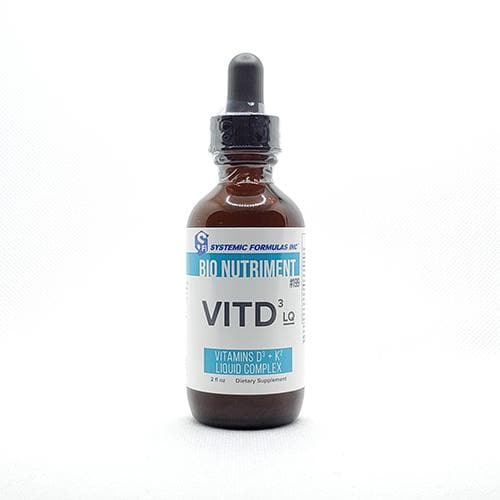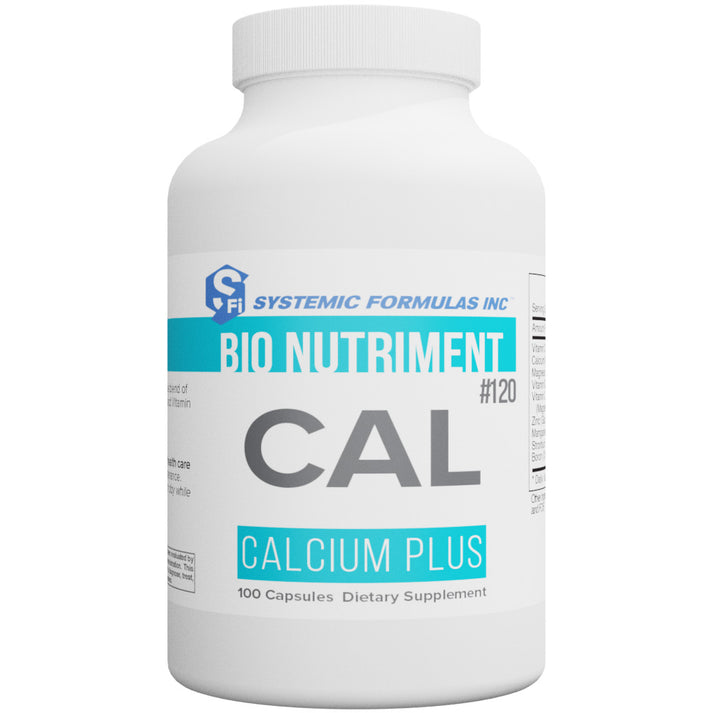The Importance of Sunshine and Vitamin D

Share
It’s getting warm outside, so more people are spending time outdoors. In addition to fresh air, one of the best benefits of being outdoors is getting vitamin D. In this article, we’ll discuss why it’s important to get vitamin D, safety considerations to be aware of, and top vitamin D supplements.
Safe Sun Exposure Benefits
Vitamin D is a nutrient needed to maintain healthy bones. It is fat-soluble and is produced by the skin when it is exposed to direct sunlight. Vitamin D is essential for many functions:
The absorption of key nutrients.
Sufficient vitamin D can help improve the body's absorption of calcium, magnesium, and phosphate. Magnesium, for example, assists in bone growth and maintenance and supports a healthy immune system.
Bone health.
Vitamin D is essential for calcium absorption and is linked to bone mineral density. Studies indicate vitamin D supplementation might improve muscle strength, which can help decrease the incidence of falls and reduce the risk of fractures.[1]
Immune system function.
Recent studies note a potential link between a vitamin D deficiency and an increased length, incidence, or severity of infectious diseases and autoimmune disorders. Vitamin D has a direct impact on immune cells, which protect the body from a variety of health issues:[2]
- Viruses
- Toxins
- Cancer
- Cuts
- Bites
Sunlight and mood.
Sunlight stimulates the release of serotonin, a brain chemical that helps improve mood and promote a sense of calm and focus. A recent study found a potential link between depression and low levels of serotonin in the brain.[3]
During winter, many are affected by Seasonal Affective Disorder (SAD), linked to shorter daylight hours and lack of sunlight. Preliminary studies link low vitamin D levels to an increased risk of SAD and poor mental well-being. Researchers conclude vitamin D supplementation may alleviate symptoms associated with SAD.[4]
Improved Sleep.
Regular daytime sun exposure can promote better sleep quality at night. Vitamin D and sunlight are involved in the production of melatonin, the hormone that helps regulate your circadian rhythm, your body's internal clock.[5]
Cardiovascular health.
Vitamin D helps regulate blood pressure by maintaining the health of the endothelial cells, which are the inner lining of blood vessels. These cells release substances that promote growth, movement, fluid absorption, and blood flow regulation. A vitamin D deficiency has been linked to a higher mortality and incidence of cardiovascular disease.[6]
Other studies suggest that sunlight may help release nitric oxide, a compound that relaxes blood vessels. Nitric oxide is a colorless gas produced naturally by the body and plays a key role in regulating cardiac functions. Impaired production or reduced bioavailability of nitric oxide is believed to increase the risk of cardiovascular disease.[7]
Skin Conditions.
It should be noted that vitamin D is activated when sunlight shines on exposed skin. As a result, the skin receives benefits from vitamin D as well. Studies indicate sunlight and vitamin D may help some skin conditions, including acne, psoriasis, vitiligo, eczema, and others.[8]
Important Safety Considerations
While sunshine is essential for good health, moderation is key. Here are a few things to keep in mind this summer:
Sunburn and Skin Cancer.
Excessive exposure to ultraviolet (UV) radiation is a significant risk factor for skin cancer, including deadly melanoma. When venturing outside, consider the following tips:
- Apply sunscreen 15 minutes after being outside. This allows the body to get the daily vitamin D dose.
- Wear protective clothing, including hats, long-sleeve shirts, pants, and sunglasses.
- Avoid prolonged sun exposure during peak hours, typically 10 a.m. to 2 p.m.
Note: Studies on vitamin D find it may help decrease the risk of specific cancers, but high vitamin D levels or overexposure to sunlight might increase skin cancer risks.[8]
Eye Damage.
UV rays can cause cataracts and other vision problems. Sunglasses, soft contact lenses, and clear glasses that offer UV protection can reduce UV exposure to the eyes. This is especially important for children because UV transmittance is higher at a younger age.
Note: increased UV exposure can also occur under the following circumstances:
- Higher altitudes (also during winter months)
- Outdoor work
- Extended leisure time spent outdoors
Heat-Related Illnesses.
Excessive heat and sun can lead to dehydration, heat exhaustion, and heat stroke, especially for vulnerable populations. The following symptoms may be signs of excessive exposure to heat:
- Headaches
- Fatigue
- Dizziness
- Nausea and vomiting
- Excessive sweating
Seek medical attention immediately if suffering from heat exhaustion. Here are a few tips on avoiding heat-related illnesses:
- Wear appropriate clothing (loose fitting, light colors)
- Reduce intensity when working or exercising outside
- Decrease the amount of time spent outside during peak hours
- Stay hydrated, always keeping a water bottle handy (water, electrolytes, etc.)
- Have a buddy close by when going outdoors if susceptible to heat exhaustion
- Get slowly acclimated to the heat
How Much Sun is Safe?
The ideal amount of sun exposure varies depending on your skin tone, location, and time of day. For people with fair skin, 10-15 minutes a few times a week can be sufficient for healthy Vitamin D levels. Consult a healthcare professional if you have concerns about your individual needs.
Vitamin D Supplements
In addition to sunlight, vitamin D can be obtained via supplements. The following all-natural supplements are excellent sources of vitamin D:
CytoD+K2
CytoD+K2 contains a perfect combination of vitamin D and K2 for maximum absorption and potency. Both vitamins work well together to promote bone health, regulate calcium levels, and help lower the risk of cardiovascular disease.
Key benefits of CytoD+K2 include the following: 
- Supports heart health
- Increased energy
- Reduced fatigue
- Improved bone health
- Boosts metabolism
VITD3 LQ
VITD3 LQ is a highly concentrated formula that contains a powerful blend of the following nutrients: 
- Vitamin D3
- Calcium
- L-carnitine
- Magnesium
- Beta-glucan
- Turmeric
- Vitamin E
VITD3 LQ also supports liver and kidney health: vitamin D is metabolized in the liver and kidneys to its active form. It also has anti-inflammatory effects on the liver and may help decrease the risk of poor liver health.
CAL
Vitamin D helps the body absorb calcium, which is critical for the health of bones and teeth. CAL is an all-natural supplement formulated to provide the easiest assimilation of calcium in the body. It also contains a unique blend of the following key nutrients: 
- Vitamin D
- Magnesium
- Vitamin C
- Vitamin E
This unique blend of nutrients provides increased opportunities for calcium to readily absorb in the G.I. tract. This helps to ensure the body receives the calcium needed to maintain good health.
Summary
Approximately 1 billion people worldwide have vitamin D deficiency, and 50% of the global population has vitamin D insufficiency. Summer is an excellent time to go outside and get the vitamin D our bodies require for good health. Just 15 minutes of direct sunlight exposure daily can provide most people with the necessary vitamin D.
References:
- Eamon Laird, Mary Ward, Emeir McSorley, J J Strain, (et al).Vitamin D and bone health: potential mechanisms. Nutrients. 2010 Jul;2(7):693-724. doi: 10.3390/nu2070693. Epub 2010 Jul 5. [PMID: 22254049].https://pubmed.ncbi.nlm.nih.gov/22254049/
- Tomoka Ao, Junichi Kikuta, and Masaru Ishii. The Effects of Vitamin D on Immune System and Inflammatory Diseases. Biomolecules. 2021 Nov; 11(11): 1624. Published online 2021 Nov 3. doi: 10.3390/biom11111624.https://www.ncbi.nlm.nih.gov/pmc/articles/PMC8615708/
- Ibrar Anjum, Syeda S Jaffery, Muniba Fayyaz, (et al). The Role of Vitamin D in Brain Health: A Mini Literature Review. Cureus. 2018 Jul; 10(7): e2960. Published online 2018 Jul 10. doi: 10.7759/cureus.2960 [PMID: 30214848]. https://www.ncbi.nlm.nih.gov/pmc/articles/PMC6132681/
- Tenna Bloch Frandsen, Manan Pareek, Jens Peter Hansen, (et al). Vitamin D supplementation for treatment of seasonal affective symptoms in healthcare professionals. BMC Res Notes 7, 528 (2014). https://doi.org/10.1186/1756-0500-7-528.https://bmcresnotes.biomedcentral.com/articles/10.1186/1756-0500-7-528
- Fiammetta Romano 1, Giovanna Muscogiuri 1, Elea Di Benedetto, (et al). Vitamin D and Sleep Regulation: Is there a Role for Vitamin D? Curr Pharm Des. 2020;26(21):2492-2496. doi: 10.2174/1381612826666200310145935. [PMID: 32156230].https://pubmed.ncbi.nlm.nih.gov/32156230/
- Fernando de la Guía-Galipienso, María Martínez-Ferran, Néstor Vallecillo, (et al). Vitamin D and cardiovascular health. Clin Nutr. 2021 May;40(5):2946-2957. doi: 10.1016/j.clnu.2020.12.025. Epub 2020 Dec 29. [PMID: 33397599]. https://pubmed.ncbi.nlm.nih.gov/33397599/
- Teresa Infante, Dario Costa, Claudio Napoli. Novel Insights Regarding Nitric Oxide and Cardiovascular Diseases. Angiology. 2021 May;72(5):411-425. doi: 10.1177/0003319720979243. Epub 2021 Jan 22. [PMID: 33478246].https://pubmed.ncbi.nlm.nih.gov/33478246/
- Wedad Z. Mostafa, Rehab A. Hegazy. Vitamin D and the skin: Focus on a complex relationship: A review. J Adv Res. 2015 Nov; 6(6): 793–804. Published online 2014 Feb 8. doi: 10.1016/j.jare.2014.01.011. [PMID: 26644915]. https://www.ncbi.nlm.nih.gov/pmc/articles/PMC4642156/
